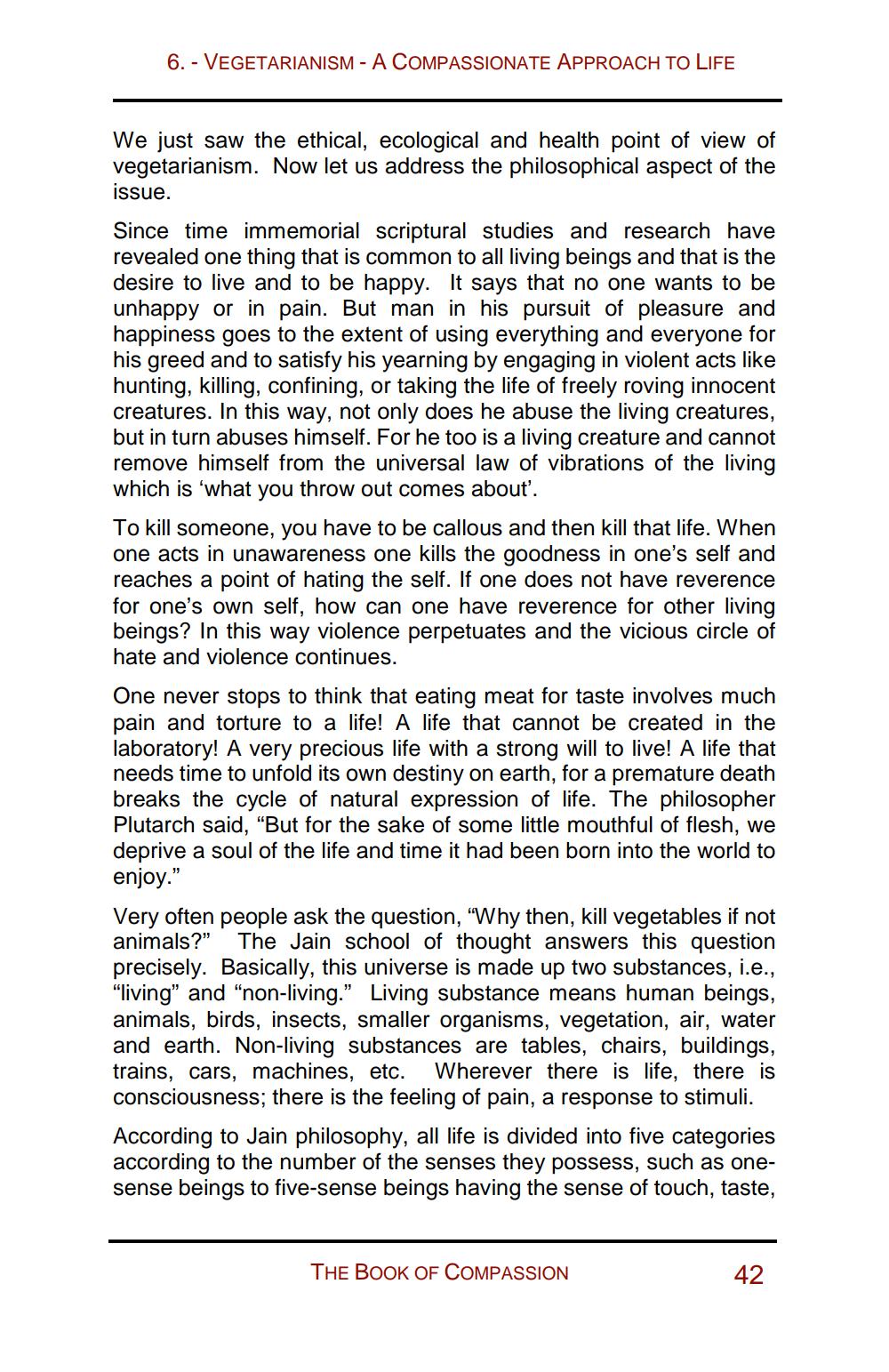________________
6. - VEGETARIANISM - A COMPASSIONATE APPROACH TO LIFE
We just saw the ethical, ecological and health point of view of vegetarianism. Now let us address the philosophical aspect of the issue. Since time immemorial scriptural studies and research have revealed one thing that is common to all living beings and that is the desire to live and to be happy. It says that no one wants to be unhappy or in pain. But man in his pursuit of pleasure and happiness goes to the extent of using everything and everyone for his greed and to satisfy his yearning by engaging in violent acts like hunting, killing, confining, or taking the life of freely roving innocent creatures. In this way, not only does he abuse the living creatures, but in turn abuses himself. For he too is a living creature and cannot remove himself from the universal law of vibrations of the living which is 'what you throw out comes about'.
To kill someone, you have to be callous and then kill that life. When one acts in unawareness one kills the goodness in one's self and reaches a point of hating the self. If one does not have reverence for one's own self, how can one have reverence for other living beings? In this way violence perpetuates and the vicious circle of hate and violence continues.
One never stops to think that eating meat for taste involves much pain and torture to a life! A life that cannot be created in the laboratory! A very precious life with a strong will to live! A life that needs time to unfold its own destiny on earth, for a premature death breaks the cycle of natural expression of life. The philosopher Plutarch said, "But for the sake of some little mouthful of flesh, we deprive a soul of the life and time it had been born into the world to enjoy."
Very often people ask the question, "Why then, kill vegetables if not animals?" The Jain school of thought answers this question precisely. Basically, this universe is made up two substances, i.e., "living" and "non-living." Living substance means human beings, animals, birds, insects, smaller organisms, vegetation, air, water and earth. Non-living substances are tables, chairs, buildings, trains, cars, machines, etc. Wherever there is life, there is consciousness; there is the feeling of pain, a response to stimuli.
According to Jain philosophy, all life is divided into five categories according to the number of the senses they possess, such as onesense beings to five-sense beings having the sense of touch, taste,
THE BOOK OF COMPASSION




